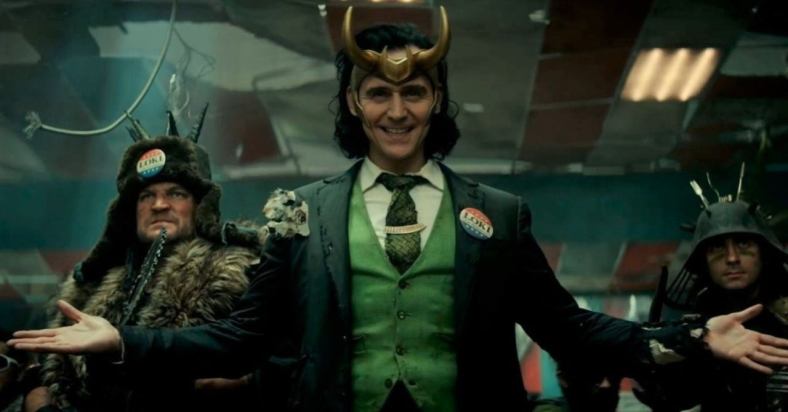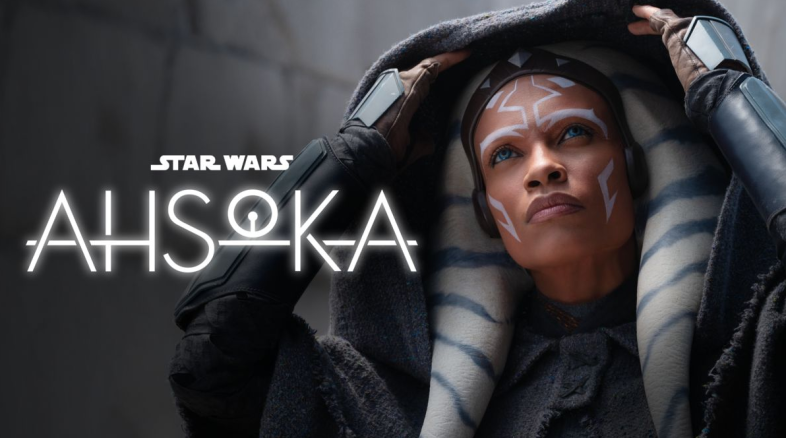These episodes picked up a bit better from where episode two left off, partly because we saw two characters coming back into it that the show has somewhat been missing: Ravonna Renslayer and a variant of He Who Remains, under the identity of Victor Timely.

We are discovering how important the character chemistry, both romantically and humorously, between the two Loki variants was to the initial installments of the show. I’ve gradually rewatched the first season while I’ve been plowing through Lost You Forever, and the combination of rivalry, identity crisis of who and what Loki is, quasi-incestuous and narcissistic romantic tension, the inability for either of the two to show vulnerability or self awareness of their flaws, even as the recognition that they’re both different from the Loki archetype while still painfully recognizing the limitations in themselves when they meet one another, was all a complex relationship and reflection on arguably the most interesting long term character in the entire MCU that was vital to the first season.
And now… it seems like they’re still finding their way back to that.
Victor Timely, I’m reading based on the directors’ comments, is inspired a bit by an actual black inventor by the name of Granville Woods, who was contemporary to the period that Timely is depicted in. Woods, as the history goes, invented many, many things but frequently had his patents challenged or stolen by white inventors, including but not limited to Thomas Edison. As a parallel here, Timely is shown demonstrating a fabulous prototype of the Temporal Loom — immediately recognized by Loki and Mobius on sight — and is accosted by numerous white businessmen insisting they must have it and don’t seem very interested in taking no for an answer.
Timely’s own fate is caused by a divergence created when Renslayer drops a TVA technical manual in his window when he’s a youth, and then comes back to reap what she’s sown in 1893. Mobius and Loki find Timely, and Loki immediately recognizes him as soon as he sees him in good light as a He Who Remains variant. Timely speaks with a pronounced speech impediment. He Who Remains was always more than a little eccentric rather than actively cruel, a cold realist who had a few screws loose. Timely is a mistrustful fellow who quickly gets eyes for Renslayer, but is reflexively opposed to being in any kind of equal partnership with everyone — Renslayer inadvertently presses his trigger button by even using the word, and he dumps her overboard in a lifeboat as soon as possible once she does.
However, the show ultimately all comes back to the critical character flaws of Loki and Sylvie: he’s ultimately arrogant and thinks he should be in a much higher place in the multiverse than he deserves, and she’s wildly mistrusting of everyone around her and wants to kill everyone who even remotely looks like someone who’s wronged her.
The action of these two shows first involves a semi-comical chase for Timely, and then dealing with the revanchist hunter caste among the TVA while they’re trying to sort out how to fix the Temporal Loom. Renslayer and Minutes are in a bit of rivalry over first gaining power over Timely, and then ultimately decide to band together when it becomes clear that Timely is ultimately not interested in working with them. At the end of episode 3, Loki finally convinces Sylvie that they need Timely to at least stabilize the timelines of the multiverse without seeking to rule them after an episode-long argument, but she’s still unwilling to accept that the TVA isn’t itself the problem.
And then in episode 4, we get something like a mid season climax before the end: Timely and Ouroboros have a bit of a bromance once each of them discovers that the other inspired them tremendously in their own work, and come up with a way to fix the Loom. However, they ultimately find that they’re too late, and even attempting to physically approach the Loom’s controls is immediately fatal. Ouroboros’ evasive description of “spaghettification” and comparison to black holes is not entirely a parallel: where a black hole’s gravity would stretch an object into a noodle like shape in its final plunge past the event horizon, the “temporal radiation” around the Loom literally turns Timely, hazard suit and all, into a flying heap of spaghetti like noodles as soon as he steps out to fix it.
And there’s a telling foreshadowing that Loki has reverted to his former self, good and bad: when Sylvie challenges him that he’s “playing God,” his immediate response is that they are gods.
And that, as much as anything else, should be a glaring hint that he’s about to have everything come apart very badly. Because the last time he protested that he was a god when things were going sideways went like this…
And this time, it was even worse. In fairness, Loki is not quite so naked in his ambition for power this time. He’s doing what he thinks needs to be done, to save himself and a large cross section of the multiverse. However, he’s still messing with forces he doesn’t understand more than on a rudimentary level, and he’s come far too late to the party to stop it from melting down.
That said, there was a ton of wrapping up the last of the time skipping questions from the earlier episodes of the series: why was Sylvie in the elevator in the then-future in episode 1, and who pruned Loki at that point to save him from time skipping? How did the TVA personnel get their memory erased?
Sylvie was in the elevator because they were working together to prevent the Loom from melting down, and Loki’s episode 1 self skipped to this episode’s events and saw Sylvie’s episode 4 self along the way. Episode 4 Loki recognized the parallels of what was going on, and when he saw his own episode 1 self coming up to the elevator while he had a time stick in his hands, he immediately recognized that he had to close the time loop and save his own past self. Episode 2 Sylvie didn’t know why she was there because it hadn’t happened to her yet, either. Episode 4 ties all these threads together.
We also now know that He Who Remains was working openly with Renslayer during the Multiversal War, and then decided he needed to wipe their memories. It’s a bit of a call out to Timely’s refusal to work in equal partnerships — He Who Remains has only servants, not partners. It’s an area where Timely grows past his variant self when he’s willing to work with Ouroboros and the others.
However, the fact remains that there were multiple He Who Remains faces on the conference room wall. My interpretation of that is relatively simple: He Who Remains created the TVA along with something like the Council of Kangs, and eventually decided that the Council itself was still too dangerous and needed to turn on them as well.
That said… we have a cliffhanger now. Because the ending of this episode strongly implies that everybody died. Renslayer killed Dox and her people when they refused to join her in taking over the TVA again, except for Brad. Miss Minutes proved strangely vulnerable to a simple system reboot at the office. Sylvie enchanted Brad and used him to prune Renslayer. Timely got shredded when he sought to fix the Loom. And then the Loom blew up and seemingly killed all the other main characters.
However, we’re only four episodes into what is supposed to be a six episode season. Frankly, it was a bit startling to even see the protagonists fail this spectacularly… but then, our title character was never truly a hero. He was a tragic figure who ranged between antihero and outright villain. He’d been hinting at his more villainous side for multiple episodes now, and that side of him eventually returned to his arrogance and swiftly failed when he bit off more than he could chew. He was never Thanos, he’s Sisyphus. He’s destined to reach for more than he can handle, and fail.
So the question is, how do they live? Unlike Loki’s pruning this time last season, there was no post credits reveal with Classic, Boastful, Kid, and Alligator Loki finding him in the Void. There’s just the frame going white, and then it goes black in sudden Soprano’s like fashion.
My two possible theories: the Loom’s temporal meltdown disperses them all in time and space rather than killing them outright, or else someone in the room (or elsewhere) fires up their TemPad at the last second and gives them an escape.
We’re on uncharted ground here. The TVA as we know it appears to have been conclusively destroyed at last, and in that sense, Sylvie got her wish. (My prediction is that she uses He Who Remains’ TemPad to get herself and Loki out.) It makes some sense that the Temporal Loom might well have never been truly necessary to regulating the flow of time — this was, instead, He Who Remains’ means of usurping control of it in order to make his variants’ existence impossible by coalescing all of time into a single timeline, and as soon as that control began to break down, it was always going to blow up. While this means that the Kangs can now likely run even more rampant (and we may well be headed for a Secret Wars like ending that, if the comics’ mold is going to be followed, will end with Doctor Doom as a key villain), we are likely heading for a reveal that Sylvie was right in the end. Ergo, the TVA was never necessary, and their entire existence was part of He Who Remains’ efforts at total control of time and space. They were the problem, and Loki’s effort to gain control of it, out of greed in the first season and an arrogant perception of necessity in this one, was always doomed to fail. It could only exist as a means of absolute domination, and it was always going to fall apart.
So now we’re about to find out what happens after it falls apart.
I’m very much here for it.
Thanks for reading.





